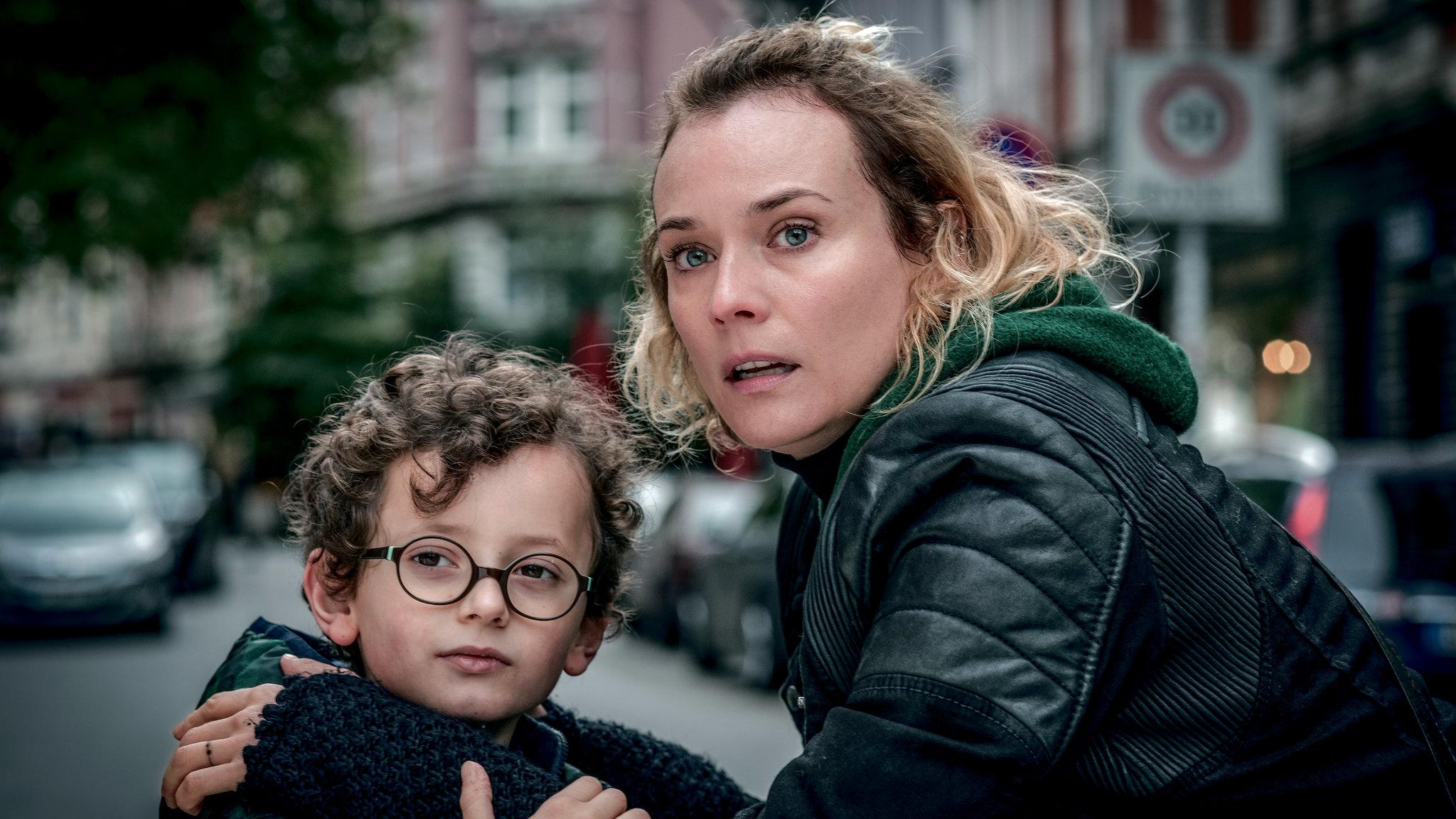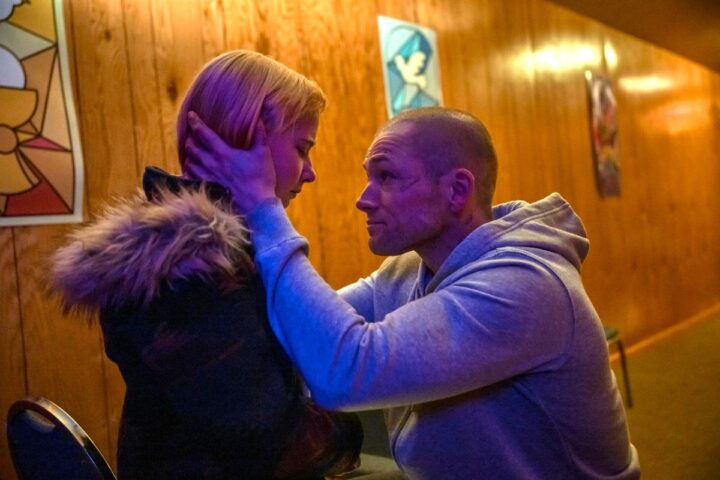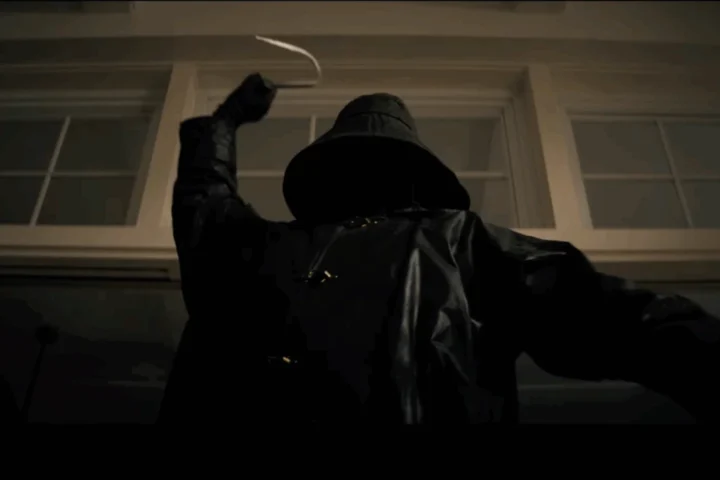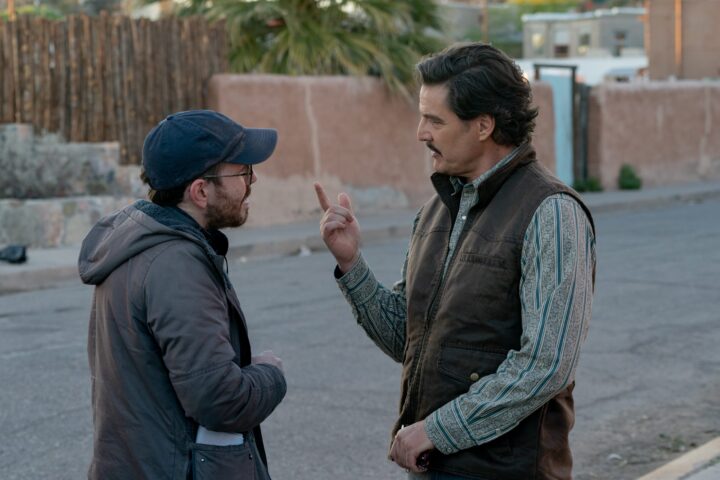A powerhouse Diane Kruger drives Fatih Akin’s German thriller In the Fade, a gripping descent into grief and revenge courtesy of the star’s 2017 Cannes-winning performance. Kruger, in every scene of the film, acts with a startling rawness, clawing deeply into the emotions of a woman who has lost everything—yet the world isn’t finished with her yet.
Picture opens in a Hamburg prison with wedding video footage of convicted drug dealer and Turkish immigrant Nuri Sekerci (Numan Acar) and bottle blond, tattooed Katya, immediately establishing a believable bond between a well-matched, passionate pair of working class lovers. This device—of replaying short, happy home videos saved on a mobile phone—is used to considerable effect at key junctures across this harrowing story.
Present day and several years later Nuri is out of jail and living clean, a tax advisor and translator to Hamburg’s Turkish immigrant community while Katja splits time bookkeeping for their business and raising their six-year-old son, Rocco (Rafael Santana). Akin creates a compelling, if brief, portrait of a familial bliss. Life, it seems, is finally going in the right direction.
But when an explosion takes the lives of father and son, Katja is immobilized by the pain—as are we—and while her relatives and compassionate best friend (Samia Muriel Chancrin) keep close, nothing can numb the emptiness and terror. Did they feel anything? Could the boy have suffered? What do their corpses look like?
Wrestling with unanswerable questions, suicidal Katja self-medicates by snorting cocaine and smoking crack while helping investigators piece together a potential culprit. The police take the obvious route of interrogating the widow while doing a character assassination on the deceased. Who were his associations? Was he dealing drugs again? Could it have been a foreign mafia hit? Nothing adds up.
The truth is darker, and when a pair of married, unrepentant neo-Nazi nationalists (Ulrich Brandhoff, Hanna Hilsdorf) is brought up on charges, Katja employs the help of longtime friend and attorney Danilo (Denis Moschitto). The film’s midsection—a trial with the usual machinations, pileup of evidence and establishing of doubt—is familiar but compulsively engrossing, particularly when Katja is forced to hear the grisly details of what a nail bomb does to a body at close range.
This is strong, scary stuff, and its contemporary relevance in personalizing the numbing daily headlines can’t be understated. Kruger’s expression while listening to expert testimony of her son’s death is so wrenching you can practically hear her labored breathing and beating heart. The trial also yields bogus witnesses, the revelation of a global white supremacy network and a surprising encounter with the father (Ulrich Tukur) of the accused, whose sympathies lie far from his Adolph Hitler worshipping son.
Celebrated German writer-director Akin (Head On) ambitiously takes on questions of homegrown, anti-immigrant terrorism, charting a fictional story with the real-life context of neo-Nazi bombings and executions that took place in German a decade ago, and in some corners the pictures has stirred controversy and accusations of being tone deaf to today’s events.
But the engine of this picture is Kruger’s hellfire portrait—she’s in nearly every scene—and for a good while, that almost seems enough. But near the midpoint the narrative intensity begins to slacken, the trial feels a bit routine and the final reel, a vigilante climax near the Grecian seaside, dissipates our hopes for deeper insights into how justice-deprived survivors navigate the emotional fallout of terrorism.
I am not sure I bought—or that In the Fade quite earns—its thunderclap denouement, which strangely feels both logical and somewhat of a copout. But there is no denying the elemental force of Diane Kruger, able to breathe, plot, plan and come back alive for a moment in the Greek sunlight (after being all but washed away by the Hamburg rains of the picture’s first half), actualizing a satisfying comeuppance, underscored by the unnerving chords of composer Josh Homme (Queens of the Stone Age)—even if it short shrifts the film’s powerful set-up.
3 stars.



